-
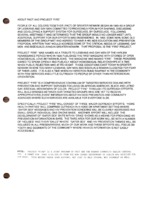
Page describing Project Fire, a joint program of PACT and the Newark Community Health Centers, Inc. Located within Fire Same Sex Training Manual
-
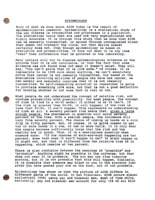
Sheet explaining epidemiological studies with study questions. Located within Fire Same Sex Training Manual
-
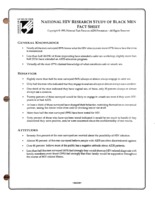
National HIV Research Study of Black Men Fact Sheet by the National Task Force on AIDS Prevention
-
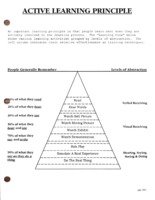
Guidelines to effective learning strategies, including active learning principles, learning cone, definitions of culture, dimensions of cultural diversity, experiential learning cycle. Located within Fire Same Sex Training Manual
-
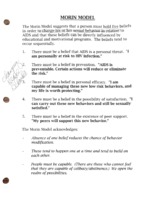
Morin model. Text includes: a person must hold five beliefs in order to change his or her sexual behavior in relation to AIDS. Located within Fire Same Sex Training Manual
-
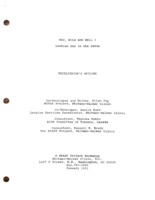
Wet, Wild, and Well! Lesbian Sex in the 1990s Facilitator's Outline. HEART Project Workshop. Located within Fire Same Sex Training Manual
-
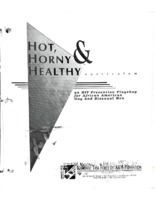
curriculum guide for an HIV prevention playshop for African American gay and bisexual men. Sessions include welcome, mourning, affirmation, eroticizing, negotiation, and closing. Located within Fire Same Sex Training Manual
-
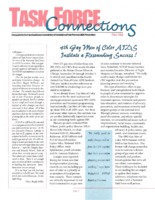
The quarterly technical assistance newsletter of the National Task Force on AIDS prevention. Main article is on 4th Gay Men of Color AIDS Institute . Located within Fire Same Sex Training Manual
-
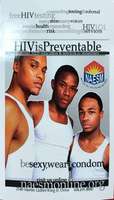
Information card found with pack of condoms and lube. Text includes: HIV is preventable. National AIDS Education & Services for Minorities. Be sexy, wear a condom. Many Men, Many Voices: A Health Education workshop/retreat for African American men. A Better you risk reduction.
-
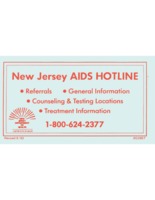
White business card for New Jersey AIDS hotline. Text includes: referrals, general information, counseling & testing locations, treatment information. Have no sex is safest. If you do have sex, always use a latex condom and spermicidal foam/jelly with "nonoxynol-9." HIV (the AIDS virus) is transmitted through blood, semen, and vaginal blood. If you use drugs, try to get help right away. If you shoot drugs, never share works with anyone. Always clean your works with bleach and rinse with water. Be good to yourself and those you love. Find out you have HIV. There are medicines that can help you.
-
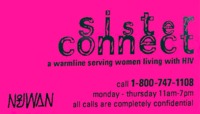
Pink business card for Sister Connect, a warmline serving women living with HIV. Text includes: a connection with women living with HIV. Information on HIV/AIDS related issues. Referrals to services for people with HIV/AIDS. friendly, nonjudgmental people to talk to. a link to the NJ Women and AIDS Network's activities and programs. A regular "phone buddy"
-
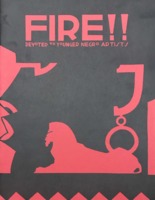
African-American literary magazine published in New York City in 1926 during the Harlem Renaissance.
-
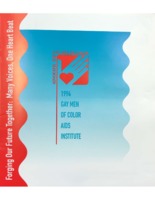
Program for the 4th Gay Men of Color AIDS Institute in Chicago.
-
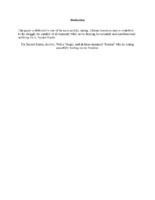
A draft of Duncan Teague's paper delivered at
"Whose Beloved Community?: Black Civil Rights and LGBT Rights" conference at Emory University, on March 28, 2014. Mr. Teague describes his first forays into gay life as a young black gay man, the "neutering" of James Baldwin in news media, and the beginning of his career as an HIV educator.
-
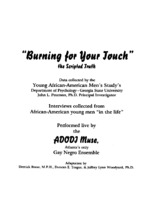
Performance piece adapted from interviews collected for the Young African-American Men's Study, led by John L. Peterson, Ph.D., of Georgia State University. Adapted by Derrick Reese, M.P.H., Duncan Teague, and Jeffrey Lynn Woodward, Ph.D. Performed by ADODI Muse: a Gay Negro Ensemble. ADODI Muse performed the piece at Second Sunday, a support group for gay men of African descent in Atlanta, as a way of "giving the data back" to the community from which they had been gathered.
-
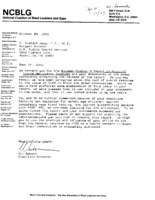
Letter commending Koop for his Surgeon General's Report on AIDS, and thanking Koop for his mention of the disease among racial minorities at the press conference announcing the report. Still, Gerald notes, the report itself did not address the disproportionate impact of HIV/AIDS on communities of color.
-
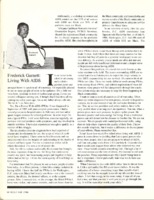
Address delivered by Frederick Garnett, a black man living with AIDS, at the National Conference on AIDS in the Black Community, on July 18, 1986. Garnett discusses racial disparities in the AIDS epidemic in Washington, DC, where he lives. He says that although African Americans make up half of the people with AIDS (PWAs) in the city, they are largely absent from clinics and support groups. He also discusses his decision "to live with AIDS rather than to shrink from it."
-
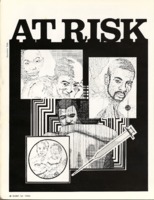
Account of the National Conference on AIDS in the Black Community, held in Washington, DC on July 18, 1986. Includes statistics about the disproportionate impact of HIV and AIDS on African Americans, as well as the role of IV drug use and heterosexual transmission in the AIDS epidemic within black communities. Sessions at the conference stressed the need for culturally competent AIDS education for black communities, the lack of representation in gay and black media outlets of the epidemic among African Americans, and the need for black churches to respond to the disease.
-
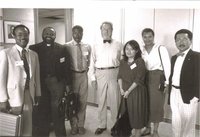
Photo taken by Jim Marks of members of the National Minority Council on AIDS taken with Surgeon General Everett C. Koop during the National Conference on AIDS in the Black Community, on July 18, 1986.
Gil Gerald and others remember the meeting as "one of the milestones in organizing NMAC," although the group already appears to have been using that name at the time of the conference. The National Coalition of Black Lesbians and Gays organized the conference, along with NMAC and the National Conference of Black Mayors as co-sponsors, and with a grant from the U.S. Public Health Service. Pictured from left to right: Gil Gerald, Reverend Carl Bean, Frederick Garnett, Dr. C. Everett Koop, Suki Ports, Amanda Houston-Hamilton, Paul Kawata.
-
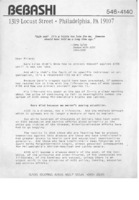
Letter concerning Gary Lyles by Rashidah L. Hassan and Curtis Wadlington
-

Two letters from Tracy C. Gibson
-

Meeting pertains to resignations of Darlene Garner and R. Lorraine Hassan;
-

Memo describes need for PATF to hire minority outreach coordinator.
-

David Fair letter describes story of Gary Lyles.
-

IMPACT Job Description and Agenda 1986

























